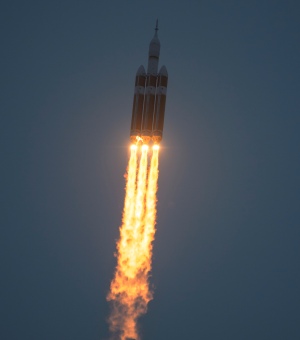
The United Launch Alliance Delta IV Heavy rocket with NASA's Orion spacecraft mounted atop, lifts off from the Cape Canaveral Air Force Station in Florida on Dec. 5. A NASA photo
WASHINGTON (PTI): The successful test flight of the Orion spacecraft is the dawn of a new chapter in space exploration, the White House said on Dec. 5 after NASA's unmanned spacecraft completed its first test flight.
"This is the dawn of a new chapter in space exploration.
"It certainly is an important milestone in achieving President (Barack) Obama's bold vision of sending humans to an asteroid in the 2020s and onto Mars in the decade after," White House Press Secretary Josh Earnest told reporters.
"Everybody here at the White House sends along our congratulations to the men and women of NASA and other commercial partners for this successful test launch, and we look forward to future milestones as we send our brave explorers out into the Solar System," Earnest said.
The Lockheed Martin-built Orion spacecraft gently splashed down into the waters of the Pacific Ocean at 11:29 a.m. EST, completing the first test flight of NASA's deep space exploration capsule.
After a successful launch from the Cape Canaveral, Florida aboard a United Launch Alliance Delta IV heavy rocket at 7:05 a.m. local time Friday morning, Orion orbited the Earth twice, reaching speeds of 20,000 miles per hour and traveling through belts of intense radiation before enduring a fiery, 4,000 degree F re-entry into Earth's atmosphere.
The Space Foundation congratulated NASA, Lockheed Martin, United Launch Alliance and the entire industry-government team involved with the successful first experimental test flight of the Orion spacecraft.
"The world is once again on a firm course of space exploration that will get us out of low Earth orbit, taking humans back to the Moon and on to Mars and beyond," said Space Foundation Chief Executive Officer Elliot Pulham.
"As an early pathfinder for the Orion programme, EFT-1 represents a gutsy effort by the entire Orion team to test early, test often, and get ahead of the substantial risk involved with any new human rated system," he added.
The flight is the first of a new US-built human rated space launch system since 1981, and the first time that a spacecraft built for humans has left low Earth orbit since 1972.
Orion is roomier and designed to go far beyond the Moon: to an asteroid and eventually to Mars.
When it becomes fully operational, the spaceship will be able to carry four people on a 21-day mission into deep space or six astronauts for shorter missions.
Orion is expected to take up its first crew in 2021.
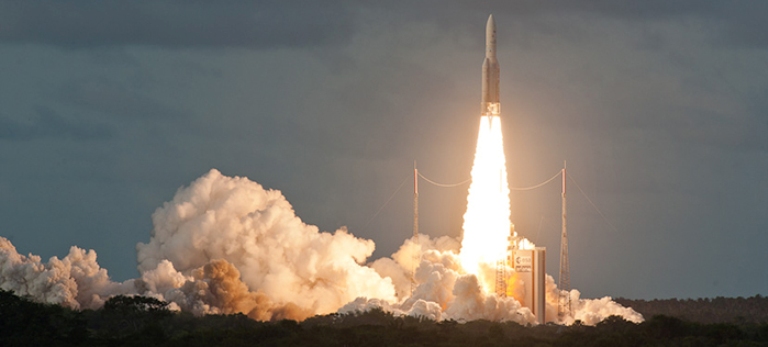 Previous Article
Previous Article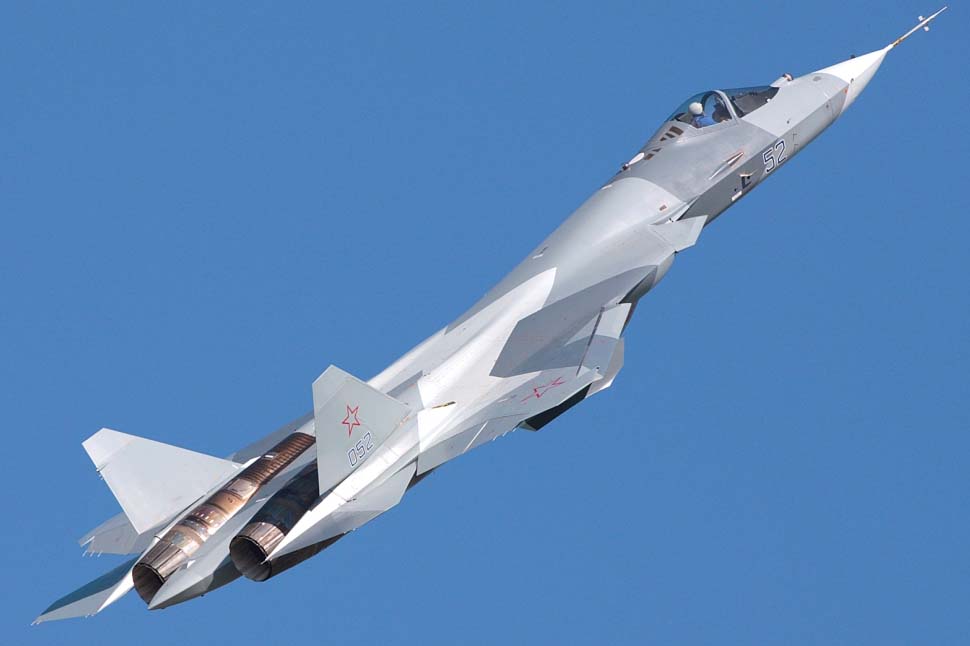 Next Article
Next Article
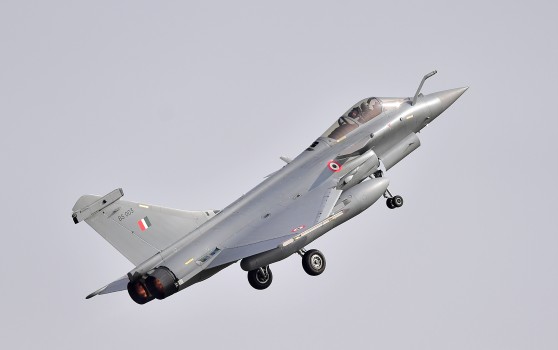

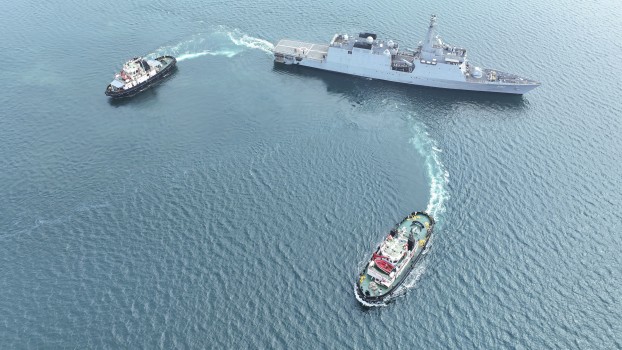










The Indian Air Force, in its flight trials evaluation report submitted before the Defence Ministry l..
view articleAn insight into the Medium Multi-Role Combat Aircraft competition...
view articleSky enthusiasts can now spot the International Space Station (ISS) commanded by Indian-American astr..
view article